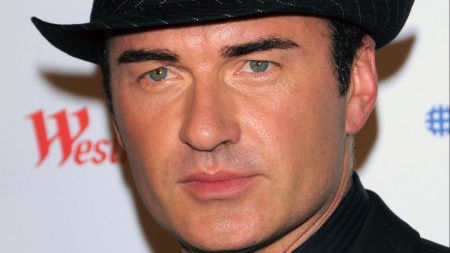The historical drama series “Say Nothing” has incited considerable controversy with its depiction of Marian Price, a veteran Irish republican, allegedly murdering Jean McConville during The Troubles in 1972. The program, based on the best-selling book by Patrick Radden Keefe, details the harrowing events surrounding McConville’s abduction, execution, and clandestine burial by the Irish Republican Army (IRA). As a significant and tragic figure in Irish history, McConville’s story has recently garnered renewed attention, particularly after her remains were discovered in 2003, leading to greater public interest in the series and the events it narrates.
Marian Price, who is also known by her married name Marian McGlinchey, is currently embroiled in a legal battle against Disney+, asserting that the dramatic portrayal in “Say Nothing” is defamatory. Price has vehemently denied any involvement in McConville’s murder, claiming she has been “publicly connected” to this heinous act without any substantial evidence to support it. Her attorney, Peter Corrigan, emphasized the severity of the allegations against Price, highlighting that the accusation represents a significant blow to her character and reputation, necessitating legal action to seek redress.
The portrayal of McConville’s demise has particularly resonated with her surviving family members, many of whom have expressed outrage at how the series dramatizes an event that profoundly impacted their lives. One of McConville’s children labeled the depiction of her mother’s murder as “horrendous” and “cruel,” revealing how fictionalized accounts of real events can cause additional pain and trauma to those who have already suffered greatly. The series’ representation raises critical ethical questions regarding the dramatization of sensitive historical events and their impact on the victims’ families.
The backdrop of “Say Nothing” is rooted deeply in the cultural and political turmoil of the Troubles, a conflict that spanned three decades and resulted in about 3,600 fatalities, exacerbating long-standing tensions in Northern Ireland. The history surrounding these events remains contentious, and the portrayal of any individual or incident can provoke strong emotions from various factions involved in the conflict. The series, particularly in its treatment of Marian Price and Jean McConville, illustrates the struggles for memory, meaning, and accountability in a society striving to reckon with its violent past.
As a notable figure associated with the IRA, Price rose to prominence through her actions during this tumultuous period, especially with her conviction for a car bomb attack on the Old Bailey courts in London. The implications of her current legal case against Disney+ reflect broader issues surrounding the representation of historical narratives and the responsibility of media creators to ensure accuracy and respect in their storytelling. In light of the enormous societal repercussions stemming from these events, the obligation to honor the memory of those affected—both victims and their families—becomes all the more urgent.
Currently, Disney+ has yet to comment publicly on Price’s defamation lawsuit, leaving many questions unanswered regarding the show’s commitment to portraying historical events accurately. This situation exposes not only the complexities of representing historical trauma in popular media but also serves as a reminder of the ongoing struggles faced by families and communities affected by past violence. As the legal battle unfolds, it will be essential to analyze the implications for creative liberties in dramatizations of real-life events, alongside the quest for justice and healing within a society still grappling with the echoes of its history.














